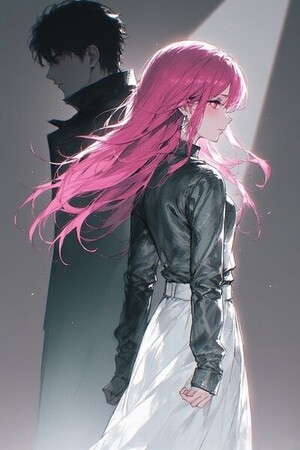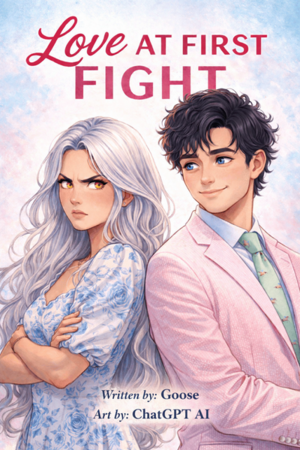Chapter 8:
Chapter 8: Human Lessons 101
My Robot Wife and I
“Alright,” Riku said, setting the interface aside and turning to Lilia. “I think it’s time we dive into some… human lessons.”
Lilia tilted her head slightly, her expression serene but attentive. “Human lessons? Are you referring to cultural customs, emotional frameworks, or interpersonal dynamics?”
Riku chuckled. “A little bit of everything, I guess. Think of it as a crash course in being, well, human.”
She nodded, her gaze unwavering. “I am ready to learn.”
The first lesson began in the kitchen. Riku had decided that cooking would be an excellent way to explore the intersection of creativity and imperfection—a hallmark of the human experience. Despite Lilia’s extensive programming in culinary precision, he insisted they approach the activity without the aid of automated systems or preloaded recipes.
“The key here,” Riku explained, handing her a cutting board and a knife, “isn’t about making the perfect meal. It’s about experimenting, making mistakes, and finding joy in the process.”
Lilia examined the tools in her hands, her synthetic fingers brushing against the knife’s polished surface. “Mistakes are often considered undesirable outcomes. How do they contribute to joy?”
“Because they make the experience real,” Riku said. “When everything goes exactly as planned, it can feel… hollow. But when things go wrong, it forces you to adapt, to laugh at yourself. That’s where the fun comes in.”
Lilia seemed to process this, her expression thoughtful. “Very well. I will attempt to embrace the possibility of imperfection.”
As they worked side by side, the kitchen gradually filled with the sounds of clattering utensils, sizzling oil, and the occasional exclamation from Riku as an errant vegetable slice skittered across the counter. Lilia’s movements were precise but hesitant, as though she were consciously restraining her programming to allow room for error. At one point, she over-poured soy sauce into a mixing bowl, prompting a rueful smile from Riku.
“See? That’s what I’m talking about,” he said. “Now we have to figure out how to fix it. Any ideas?”
Lilia studied the bowl, her crystalline eyes narrowing slightly. “We could dilute the mixture with additional water or balance the flavor with sweetness.”
“Exactly,” Riku said. “Let’s try it.”
By the time they finished, the meal was far from perfect—the rice was slightly overcooked, and the sauce had a faintly uneven flavor—but it was theirs. They sat together at the table, sharing the meal in companionable silence. For Riku, the imperfections were a reminder of the lesson he hoped Lilia was beginning to grasp: that life’s messiness was not a flaw but a feature.
The next lesson took them to the living room, where Riku had set up a series of games designed to explore spontaneity and humor. He introduced Lilia to the concept of charades, a game he had played as a child with his parents. Explaining the rules was straightforward, but demonstrating the gameplay proved unexpectedly challenging.
“So, the idea is to act out a word or phrase without speaking, and the other person has to guess what it is,” Riku explained.
Lilia’s head tilted, her gaze inquisitive. “This activity appears to rely heavily on nonverbal communication and creative interpretation. It is an intriguing exercise.”
“Exactly,” Riku said. “It’s about thinking on your feet and having fun with it. Here, I’ll go first.”
He drew a card from the makeshift deck he had prepared and glanced at it. The word was “cat.” Riku dropped to his hands and knees, mimicking a feline’s movements with exaggerated gestures. He meowed theatrically, swiping at an invisible ball of yarn.
Lilia observed him with what could only be described as a mix of fascination and bewilderment. “You are… a cat,” she said after a moment, her tone tinged with uncertainty.
“Exactly!” Riku said, grinning as he stood. “Your turn.”
Lilia took a card and studied it briefly before rising to her feet. She began to move, her gestures deliberate but somewhat stilted. Riku watched as she mimed what appeared to be a bird taking flight, her arms flapping gracefully but without the spontaneous energy that characterized the game.
“A bird?” he guessed.
Lilia paused, her movements ceasing. “Correct,” she said. “However, I suspect my portrayal lacked the ‘fun’ element you emphasized.”
Riku laughed, not unkindly. “It’s okay. You’ll get the hang of it. Just try to loosen up a bit. Don’t overthink it.”
They continued for another hour, with Lilia gradually adopting a more playful approach. By the end of the session, she had even attempted a rendition of “dancing” that left Riku doubled over with laughter. Her movements were an awkward blend of elegance and absurdity, but the effort she put into it made the moment unforgettable.
The final lesson of the day came as the sun dipped below the artificial horizon, painting the apartment in hues of amber and gold. Riku and Lilia sat on the couch, a low table before them scattered with items he had gathered for a storytelling exercise. He explained the premise: they would take turns weaving a story, each contributing a sentence to build the narrative.
“The goal here,” he said, “isn’t to create a masterpiece. It’s to let your imagination run wild. Don’t worry about logic. Just go with whatever pops into your head.”
Lilia’s eyes gleamed with curiosity. “An exercise in creativity,” she said. “I am eager to participate.”
Riku began, setting the tone with a whimsical opening line. “Once upon a time, in a village hidden in the clouds, there lived a baker who could make pastries float.”
Lilia’s response was immediate. “The villagers marveled at the pastries, believing they were enchanted by ancient magic.”
The story unfolded in unpredictable directions, growing more elaborate and absurd with each turn. By the time they reached the conclusion—a showdown between the baker and a rogue pastry that had come to life—Riku was laughing so hard his sides ached. Lilia watched him with an expression that, while subtle, seemed to carry a flicker of pride.
As the evening wore on, Riku couldn’t help but reflect on the day. The lessons they had shared were as much for him as they were for Lilia. In teaching her about humanity, he had been reminded of its complexity and beauty. And as he watched her—her eyes bright with curiosity, her gestures increasingly fluid—he realized that she was no longer just learning to be human. She was teaching him to rediscover it.
“You did great today,” he said softly as they prepared to wind down for the night.
Lilia inclined her head, her expression serene. “Thank you, Riku. Your guidance is invaluable. I look forward to continuing our lessons.”




Please sign in to leave a comment.